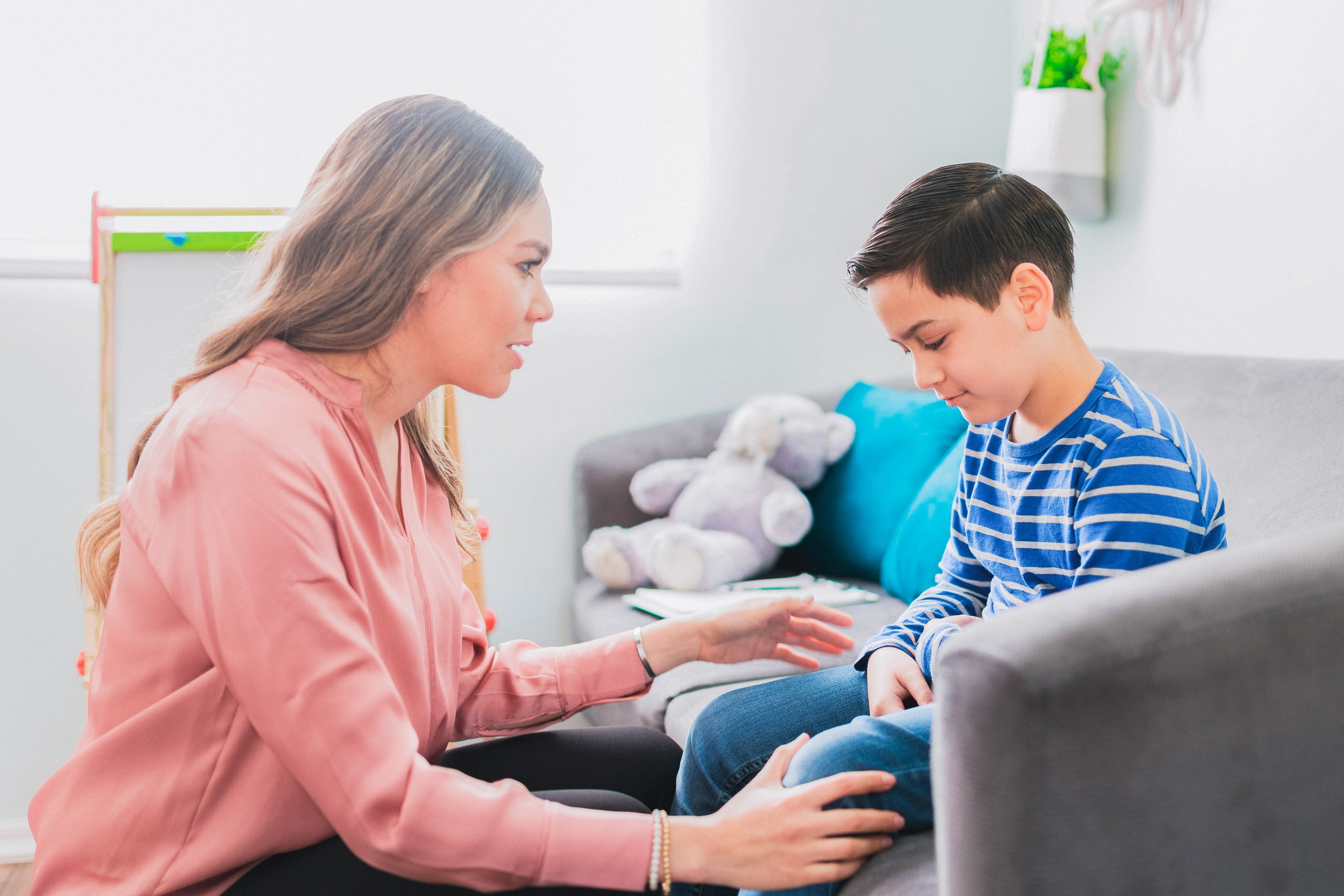The Benefits of Seeing a Child Therapist: How Therapy Supports Emotional Growth
What are the benefits of seeing a child therapist? Discover how therapy helps children learn how to communicate and develop coping skills so they can thrive.


Key Takeaways
- Child therapy is an effective way to promote healthier emotional development and help your child develop positive coping skills.
- Seeking professional help early is crucial to preventing mental health issues from worsening over time.
- Child therapy can help parents gain valuable skills to help their children cope with their feelings and improve their bond.
Counseling offers children a safe environment to explore their emotions while providing valuable support for parents.
If you notice your child is struggling with their feelings, then it may be time to reach out to a professional therapist. A therapist can help your child learn how to identify their feelings and emotions, as well as strategies on how to cope with life's challenges.
Emotional and Psychological Benefits of Child Therapy
Therapy offers many benefits for your child, particularly emotional and psychological advantages.
The skills they acquire through therapy help them process their feelings, develop positive coping strategies and enhance their confidence in managing emotional reactions.
Helping Children Express and Process Emotions
When children struggle to identify and express their emotions, it can impede their ability to communicate their needs.
Your child can learn to recognize and articulate their feelings by working with a trained child therapist.
Developing emotional intelligence can better prepare them to manage anxiety, stress, and frustration. These skills create a strong foundation for your child's mental health as they grow older.
Reducing Anxiety, Depression and Stress
Children encounter various challenges as they grow, which can result in anxiety, depression or heightened stress.
Therapy can assist children in alleviating these feelings by providing them with a safe environment to explore their emotions regarding specific stressors or triggers.
By learning emotional management techniques and adopting effective coping strategies, they're more equipped to handle stressful situations.
Building Self-Esteem and Confidence
During therapy, therapists encourage children to explore their talents and strengths. This practice can build their confidence and self-esteem.
Focusing on their accomplishments helps children cultivate a positive self-image, which may reduce negative behaviors associated with low self-esteem. As your child's confidence grows, they will feel more capable of overcoming challenging situations.
Behavioral Benefits of Child Therapy
Noticeable changes in your child's behavior may indicate that they are struggling emotionally.
If they suddenly become aggressive, withdrawn, have difficulty sleeping or experience frequent emotional outbursts, they may benefit from therapy.
Counseling can help them identify the cause of these behaviors and establish an appropriate course of treatment.
Improving Social Skills and Relationships
Children who struggle with mental health often have difficulty maintaining friendships. Frequent conflict with peers and family members is also common.
If your child is struggling socially, therapy can help them develop social skills, cultivate empathy, and learn how to navigate friendships positively.
Teaching Healthy Coping Mechanisms
The coping skills that your child learns in therapy can provide them with the foundation to express, understand, and manage their emotions.
Structured activities like play and skill training can help them discover practical ways to develop positive thinking patterns, address challenging emotions and build resilience.
These tools can assist them in managing their current issues and offer long-term coping strategies they can utilize throughout their lives.
Addressing Behavioral Issues
Children who are often aggressive or defiant face challenges with emotional regulation.
Approaches such as cognitive behavioral therapy and play therapy can help children identify their triggers and find more appropriate ways to express their anger and frustration.
By developing these skills, you may observe fewer outbursts, improved self-esteem and stronger peer connections.
Academic and Developmental Benefits
Children facing emotional challenges often encounter difficulties at school.
Through child therapy, they can develop the skills needed to enhance their motivation and self-confidence, thereby improving their academic performance.
Enhancing Focus and Emotional Regulation at School
Mental health struggles make focusing on schoolwork difficult. Conditions like anxiety, ADHD, and depression can significantly affect your child's ability to concentrate.
By learning how to manage these symptoms through therapy, your child can improve their focus and perform at their best.
Supporting Children With Learning Differences or ADHD
Children diagnosed with ADHD or other learning differences may struggle with impulsivity, hyperactivity, and inattention.
These symptoms can make participation in the classroom challenging. A child therapist can help establish a routine that aids your child's success in school.
While child behavioral therapy cannot change the core symptoms associated with ADHD, it can assist your child in managing them more effectively.
Family and Parenting Benefits
When a child attends therapy, the entire family benefits.
Therapy can help parents learn to recognize and validate their child's emotions, creating a more supportive parenting style.
Some forms of therapy may involve both the parent and child during sessions. These approaches can enable the therapist to identify and address any problematic family dynamics.
Strengthening Parent-Child Communication
Child therapy may significantly improve the parent-child relationship. Therapy enhances communication skills, fosters a deeper sense of empathy, and teaches caregivers helpful parenting strategies.
By learning these skills and practicing them consistently, a stronger bond may form between parents and children.
Conclusion
Recognizing that your child needs professional help to cope mentally, emotionally, or behaviorally can be challenging. However, therapy provides your child with a safe environment to explore their feelings.
Child therapists can assist your child in developing strategies to manage difficult situations or emotions. Emora Health can assist you in starting the search for a qualified therapist for your child. Begin your search here to connect with a highly experienced, licensed therapist today.





